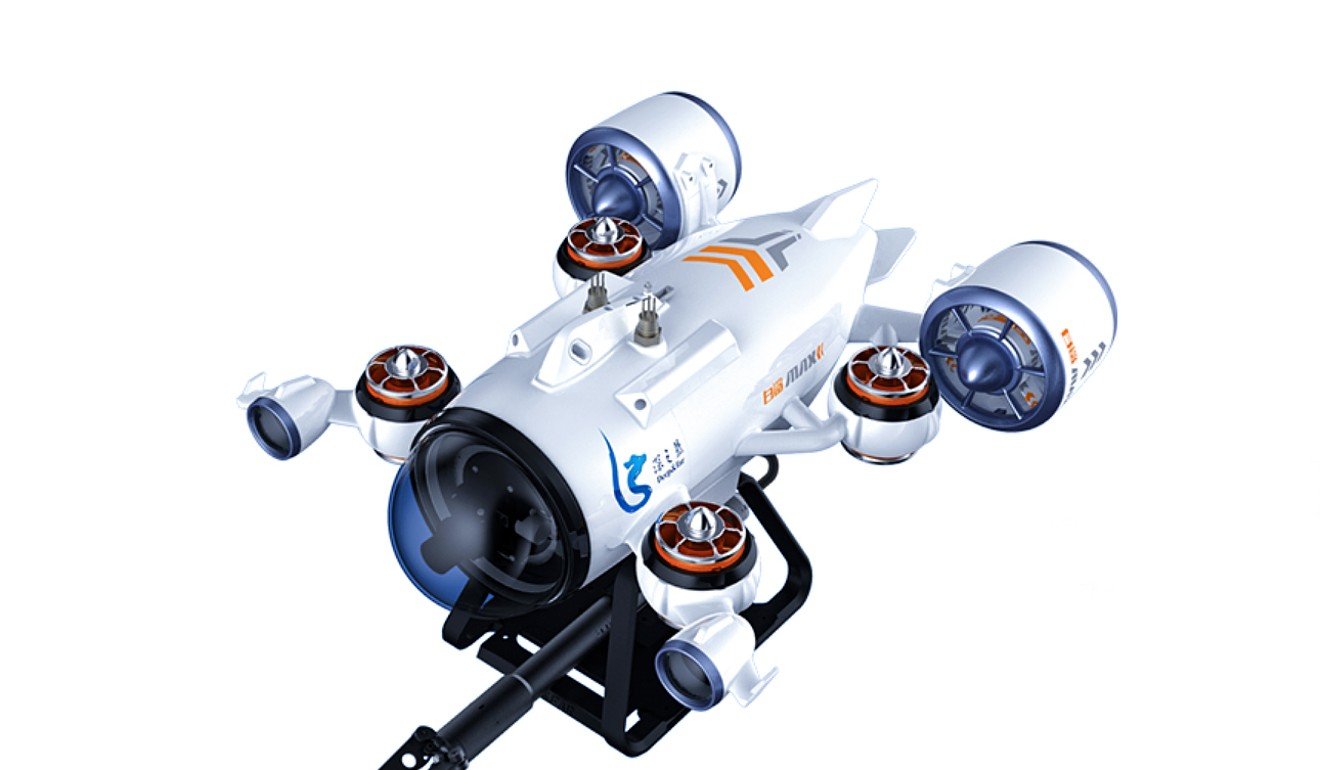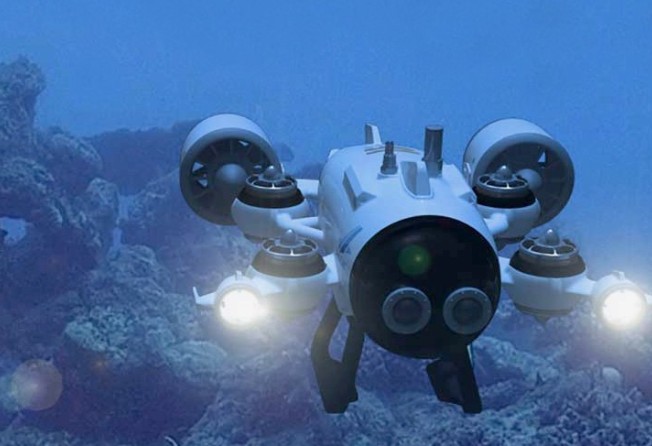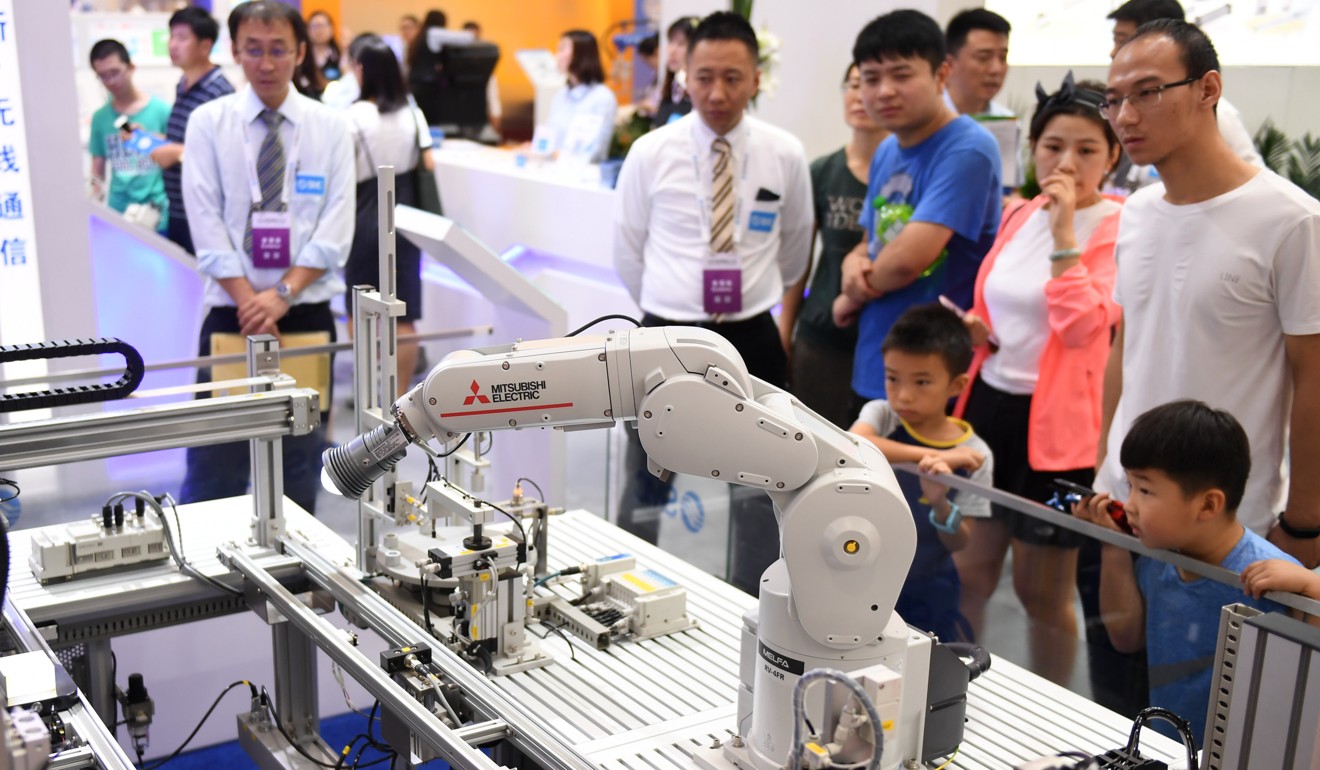
Chinese underwater drone maker’s plan to rule the waves could be scuppered by US trade war
Robotics is a key industry in the ‘Made in China 2025’ strategy, but so far Sublue’s underwater drones have not been targeted by tariffs

A former Chinese military officer who set up an underwater drone start-up in Tianjin believes that in the next few years his company can dominate the oceans like Da Jiang Innovation rules the sky, despite the escalating trade war between China and the US.
Tianjin Sublue Ocean Science and Technology, founded by decommissioned officer Wei Jiancang in 2013, forecast the company’s revenue would rise tenfold this year and is expanding production to meet growing demands.
The company produces the underwater robots for the military but has expanded into the civilian market for industrial and commercial uses. Its clients include recreational consumers as well as government agents like the customs agency in Macau.

Wei graduated from the National University of Defence Technology with a major in inertial navigation system research. After retiring from the military, he set up Sublue in 2013 in Tianjin’s Binhai district.
He said he was confident his company’s sales revenue could hit 1 billion yuan (US$146 million) by 2020 and grow exponentially to 10 billion yuan by 2022.
“The market potential is so great that we cannot see the ceiling,” he said. “The market scale could reach hundreds of billion dollars in coming years.”
Robotics is one of the strategic industries in Beijing’s hi-tech catch-up plan “Made in China 2025”. The strategy, aimed at cultivating home-grown champions in sensitive sectors, has raised alarm among foreign companies concerned about limited chances for participation and unhappy about state support for their Chinese rivals.
Watch: Tariffs leave Chinese consumers unhappy
In addition, the wider dual-use technologies such as artificial intelligence have raised alarm in the US. It has billed China as a strategic competitor and increasingly considers military and geopolitical factors when devising trade policy, according to observers.
China’s government has encouraged private firms to produce technological innovations that could help the armed forces modernise under a “military-civil fusion” initiative.
JD.com, a Chinese e-commerce giant, and SF Express, a leading delivery company, have declared support for a military-civil fusion programme, but analysts have warned that companies with ties to the military would have a higher risk of investment restrictions overseas, especially amid rising concerns in the US.
Washington and Beijing have imposed 25 per cent tariffs on US$34 billion of each other’s goods. Another US$16 billion will be subject to duties starting on Thursday, and the US is working on a list for an additional US$200 billion of Chinese imports.
China’s drones have yet to be placed on the US tariff list. But US President Donald Trump has threatened to levy punitive duties on everything China exports.
“So far we are safe, but if Trump goes further to levy tariffs on other products, Chinese drones, no matter whether they are in the air or underwater, will be hit. Nowhere to escape,” an industrial insider said.
“We would be unable to avoid getting hurt as we are very dependent on external demand.”
Underwater robots, first designed for military use, have been widely applied to civilian sectors, which have huge potential for various uses.
Sublue makes autonomous underwater vehicles and gliders that are used for aquaculture, filming and archaeology, salvage and security surveillance, as well as for recreation, according to the company’s website.
Wei said Macau Customs Service, which bought one robot last year and has placed another order, used the technology for surveillance in fighting underwater smuggling.
He said the company had developed its own technologies covering navigation, communications, power supply and air-proof features. “We have no competitors now,” he said.
Sublue has raised nearly 400 million yuan (US$58.4 million) from domestic investors, but its military applications prevent it from raising from overseas capital because of national security concerns.
Wei plans to spin off the company’s consumer product operation, which could open it to foreign capital in the future.
He is proud of his series of small automated propellers, which last year won awards for design and function. Sublue launched a miniature consumer version this year and started to receive orders in April. The buyers were mainly from Europe, the US, Australia and Japan, including hotels that would rent the propellers to clients for diving, he said. It has a sales team in Los Angeles and is setting up another in Sydney.
The orders have reached 140,000 but Sublue has delivered 12,000 units so far. To meet rising demand, Wei will install new production lines next month to expand the capacity to 300,000 units by the end of the year.

Despite rising hopes that US and Chinese leaders may agree to suspend tariffs in November, when Trump and President Xi Jinping are likely to meet at the Apec and Group of 20 summits, the US is wary of China’s growing technological efforts.
“Even if tariffs are put on hold, the US will keep trying to constrain China’s technological development by tighter investment restrictions and export controls,” Arthur Kroeber of Gavekal Dragonomics said in a research report.
The drama of American suspension of chip supplies to Chinese telecom giant ZTE, since lifted, was considered a wake-up call for China to push ahead in developing its own technology.
Zhang Yuzhuo, the Communist Party secretary of Binhai district, said the trade war was “both a challenge and an opportunity” for China.
Zhang, who has visited Sublue’s facilities multiple times, said Binhai was focused on supporting hi-tech start-ups, which accounted for nearly 30 per cent of the companies in the district.